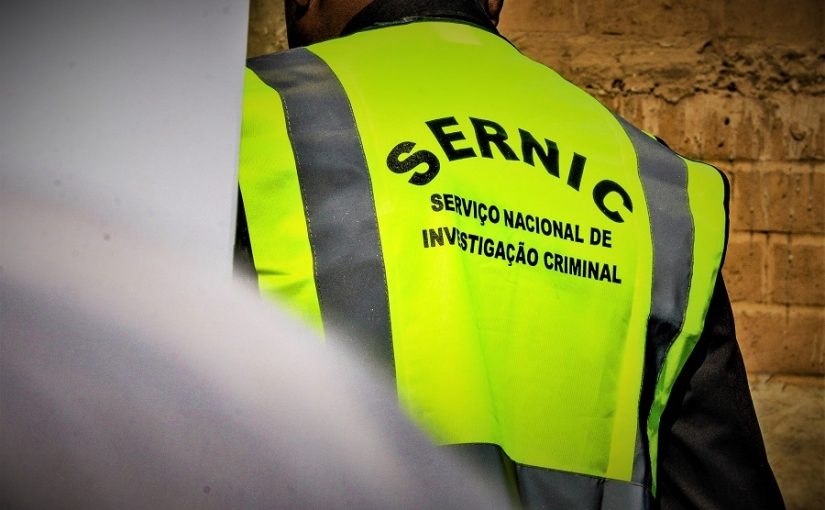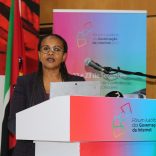Mozambique: President Chapo concludes visit to Japan, TICAD participation "extremely positive"
Mozambique: SERNIC now to operate under the Attorney-General of the Republic – Carta

File photo: Notícias
The intention to keep the National Criminal Investigation Service (SERNIC), a public entity that assists the administration of justice in matters of criminal investigation, under the control of the Minister of the Interior, as established in the proposal submitted last August by the government of Filipe Jacinto Nyusi, has been dropped.
A “lightning” proposal to revise Law No. 2/2017, of 9 January, which created the SERNIC, was submitted to the Assembly of the Republic last Friday, on an urgent basis, reversing almost everything that was proposed in the document previously contested by the Public Prosecutor’s Office and rejected by parliament.
According to the proposal submitted by the head of state last Friday and which will be debated this Friday, SERNIC will no longer be under the supervision of the Minister of the Interior, but will be transferred into the hands of the Attorney General, in line with the Code of Criminal Procedure and the Organic Law of the Public Prosecutor’s Office, in addition to eliminating the dual functional dependence, “a fact which distorts its nature as an autonomous service”, according to the head of state.
According to Daniel Chapo, the decision to remove SERNIC’s supervision from the Minister of the Interior derives from the fact that experience has demonstrated the weaknesses in the entity’s performance in its mission as an auxiliary body of the judicial authorities, “resulting from the fact that it is under the supervision of an executive body, integrated into the Defence and Security Forces, which in a certain way conflicts with the principle of separation of executive and judicial powers”.
In addition to removing the supervision of SERNIC from the hands of the Minister of the Interior, Daniel Chapo wants certain powers currently assigned to the Minister of the Interior, Paulo Chachine, to be transferred to the Director-General of SERNIC, among them the power to appoint and dismiss the heads of the bodies at all levels.
In fact, the director-general and deputy director-general of SERNIC will now be appointed by the prime minister on the proposal of the Attorney General of the Republic, and will be chosen from among judicial magistrates and the Public Prosecutor’s Office and from among the SERNIC staff.
It should be noted that, in the proposal rejected by parliament in August last year, the government maintained control of SERNIC in the hands of the Minister of the Interior. This is provided for in paragraph 1 of article 3 of the current law. The previous proposal also made the administrative acts of the director-general of SERNIC subject to ratification by the Minister of the Interior, and the entity would no longer be “a public criminal investigation service”, according to the Public Prosecutor’s Office.
It should be noted, moreover, that the proposal to revise the SERNIC Law was accompanied by the proposal to revise the Law of the Police of the Republic of Mozambique (PRM), which established, among other innovations, the introduction of criminal investigation within the PRM’s powers, an innovation promptly contested by the Public Prosecutor’s Office.
In the proposal now submitted to parliament, the President of the Republic also wants specific powers to be attributed to SERNIC to investigate crimes of trafficking in fauna and flora species and counterfeiting of currency and securities equivalent to currency.
The proposal also includes the creation of specialized units to investigate certain types of crime, such as the specialized units for the prevention and combat of cybercrime; financial and accounting expertise; combating corruption; and asset recovery.
In his reasoning, President Chapo explains that, seven (in fact eight) years after the creation of SERNIC (replacing the PIC-Criminal Investigation Police), some constraints inherent to its nature, organization and functioning have arisen “in view of the challenges of criminal investigation and the changes made to the structure of the judiciary and legislation”.
One of the aspects proposed by the President of the Republic is the establishment of SERNIC as a judicial police force, “markedly scientific, given its role as an auxiliary to the judicial authorities, without prejudice to its power to detain and handle means and instruments of coercion”.
Among the innovations of the new SERNIC law is the introduction of a SERNIC training institute; the INTERPOL [international police] office; a national inspector; and an ethics and disciplinary council. The new SERNIC law also introduces the investigation of crimes against state security; terrorism; computer fraud and related crimes; and money laundering and terrorist financing.
It should be noted that, according to the Opinion of the Ministry of Finance, issued this Monday, the implementation of the new SERNIC Law will cost 12,707,424.00 meticais.













Leave a Reply
Be the First to Comment!
You must be logged in to post a comment.
You must be logged in to post a comment.